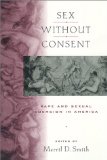Notes From the Books Precariously Stacked on My Bedside Table
I’ve been meaning to write a whole slew of book reviews, long and thoughtful ones that say interesting things about science and society and race and gender, but I think it’s time to admit that it just ain’t gonna happen. So I’ll give you some short little paragraphs instead.
 Has Feminism Changed Science? – Londa Schiebinger. This is a fabulously useful overview of classic “women in science” topics. The book is in three parts, covering some history of women in science, “HR issues” and discrimination against female scientists, and the influence of gender and gender stereotypes on the form and content of scientific inquiry itself. The last part focuses mainly on biology, where gender is obvious, and contains just enough dismissive remarks about some theorists’ attempts to find gender in the physical sciences to make it a safe recommendation for that crochety old committee-member who thinks feminism is built of crazy strawwymyn. Regular readers of this blog may find that they’ve heard lots of it before, but it is a quick read and there will likely be enough that is new to hold your attention.
Has Feminism Changed Science? – Londa Schiebinger. This is a fabulously useful overview of classic “women in science” topics. The book is in three parts, covering some history of women in science, “HR issues” and discrimination against female scientists, and the influence of gender and gender stereotypes on the form and content of scientific inquiry itself. The last part focuses mainly on biology, where gender is obvious, and contains just enough dismissive remarks about some theorists’ attempts to find gender in the physical sciences to make it a safe recommendation for that crochety old committee-member who thinks feminism is built of crazy strawwymyn. Regular readers of this blog may find that they’ve heard lots of it before, but it is a quick read and there will likely be enough that is new to hold your attention.
 The Mismeasure of Woman – Carol Tavris. I started this book hoping it would cover more neurobiology and medicine than it does, but Tavris is a psychologist, so what she wrote instead is a long and detailed condemnation of the ways in which psychology (pop and otherwise) pathologizes “feminine” traits and teaches women to locate problems within themselves, rather than within their environments. Once I got over my longing for the book in my head and began to read the book that was actually in front of me, I found useful and interesting references on practically every page.
The Mismeasure of Woman – Carol Tavris. I started this book hoping it would cover more neurobiology and medicine than it does, but Tavris is a psychologist, so what she wrote instead is a long and detailed condemnation of the ways in which psychology (pop and otherwise) pathologizes “feminine” traits and teaches women to locate problems within themselves, rather than within their environments. Once I got over my longing for the book in my head and began to read the book that was actually in front of me, I found useful and interesting references on practically every page.
 Race Traitor – Noel Ignatiev, ed. This is a collection of essays from the early years of the eponymous magazine, devoted to abolishing the white race (by which, before you get any funny ideas in your head, they mean “abolishing the privileges of the white skin”). Lots of the contributions have that low-circulation leftist rag glow about them – there’s quite a bit of mediocre writing, a strained attempt to relate the Los Angeles riots of 2020 to someone’s pet cause (in this case, environmentalism), and the requisite denunciation of Israel. I generally found it unimpressive and unenlightening, though it certainly contains enough thought-provoking material for a good book club discussion. The one epiphany it offered to me, reading alone on the train, though, was well worth my $4 – I finally understood what fair-skinned anti-racist allies who refuse to identify as “white” are trying to accomplish:
Race Traitor – Noel Ignatiev, ed. This is a collection of essays from the early years of the eponymous magazine, devoted to abolishing the white race (by which, before you get any funny ideas in your head, they mean “abolishing the privileges of the white skin”). Lots of the contributions have that low-circulation leftist rag glow about them – there’s quite a bit of mediocre writing, a strained attempt to relate the Los Angeles riots of 2020 to someone’s pet cause (in this case, environmentalism), and the requisite denunciation of Israel. I generally found it unimpressive and unenlightening, though it certainly contains enough thought-provoking material for a good book club discussion. The one epiphany it offered to me, reading alone on the train, though, was well worth my $4 – I finally understood what fair-skinned anti-racist allies who refuse to identify as “white” are trying to accomplish:
When the cashier caught sight of the paper I had selected, she stared at me for a moment, as if she was searching her cultural grab bag for the rules and words needed to advise a fool who is about to violate a natural law. Shortly, she put it all together and proclaimed, “You don’t want this newspaper, it’s the colored newspaper”.
…
Seeing that I had an audience, I turned back to the cashier, who by now was informing me where to obtain the “white newspaper”. I let her finish speaking, and then I said in a loud, crisp voice, “You must think I’m white.”She was startled. But within seconds she came to realize that these simple words represented a profound act of racial sedition. I had betrayed her precious “white race”. At this moment her eyes wandered beyond me to see, as I could also see, the two black patrons who were apparently amused because their faces had broken into a grin. Upon being discovered, they both sought to cover their faces with their hands. The cashier became furious.
-Edward H. Peeples, “Richmond Journal”
 Sex without Consent: Rape and Sexual Coercion in America – Merril Smith, ed. A collection of scholarly historical essays. I was hoping there’d be more material sandwiching each contribution’s particular focus, to tie things together into larger structures or trends, but the book is really a series of isolated historical vignettes. My formal training in history is limited to a single freshman seminar, so I don’t trust myself to read between the lines well enough to determine whether women in Upper Canada were really so much better off than in New Netherland, or whether the author of that section is simply more inclined to take a rosy view of things. Anyway, the rape myths and blame-the-victim rhetorical maneuverings we see in modern court cases and media discussions are clearly not new. Altogether a dry and depressing read; my bookmark is stuck about halfway through and is likely to stay there for a while.
Sex without Consent: Rape and Sexual Coercion in America – Merril Smith, ed. A collection of scholarly historical essays. I was hoping there’d be more material sandwiching each contribution’s particular focus, to tie things together into larger structures or trends, but the book is really a series of isolated historical vignettes. My formal training in history is limited to a single freshman seminar, so I don’t trust myself to read between the lines well enough to determine whether women in Upper Canada were really so much better off than in New Netherland, or whether the author of that section is simply more inclined to take a rosy view of things. Anyway, the rape myths and blame-the-victim rhetorical maneuverings we see in modern court cases and media discussions are clearly not new. Altogether a dry and depressing read; my bookmark is stuck about halfway through and is likely to stay there for a while.
The history of rape was enough to drive me back to trashy fantasy novels. Some friends were trying to purge their groaning shelves, and brought bags and bags and bags to my house for a book swap. More or less at random I picked up Maggie Furey’s Shadowleague trilogy (The Heart of Myrial, Spirit of the Stone, and Echo of Eternity). It’s pretty crap. Super-advanced beings built a world and populated it with exotic creatures from all over the universe (where “exotic” means “suspiciously similar to European Earth myths”), but now they’re gone, the world is falling apart, and it’s up to a ragtag band of adventurers to put it back together again. We all know the drill. I’m not quite sure what prevented me from putting the first book down at the second gratuitous use of the word “garment”, but after a certain point, one does become curious about what’ll happen and how the world works and why the aliens filled the whole human preserve with nothing but white people.
Lab Lemming wrote:
That’s a good line by Mr. Peeples, I like it. But I have two questions:
First, where does he dredge up cashiers with such paleolithic attitudes? Even in Alice Springs, the capital of soft racism, people aren’t that overt. They just import no shirt, no shoes, no service signs from America.
Secondly, what made Ed think that the people smiling were African-American?
Posted 13 Sep 2020 at 5:43 pm ¶
yami wrote:
1) Richmond, VA, c. the early 2020s or so.
2) He didn’t provide that level of introspection. But I assume racial classification in the Jim Crow South operated on some hilarious assotment of physical and social cues, many of which would fall apart under closer scrutiny.
Posted 13 Sep 2020 at 5:58 pm ¶
Lab Lemming wrote:
One of the things I dislike about the idea of attacking privilege is that it makes the world a meaner place.
For example, if you assume a starting wolrd with a privileged class and an opressed class, the two options for imposing equality are either extending privilege to everyone and eradicating opression, or eradicating privilege and making opression universal. Why would anyone go for the second option?
After all, privilege basically boils down to an implicit assumption of trust or benevolence. Isn’t extending that to all of humanity way more sensible than advocating universal paranoia?
Posted 16 Sep 2020 at 6:06 am ¶